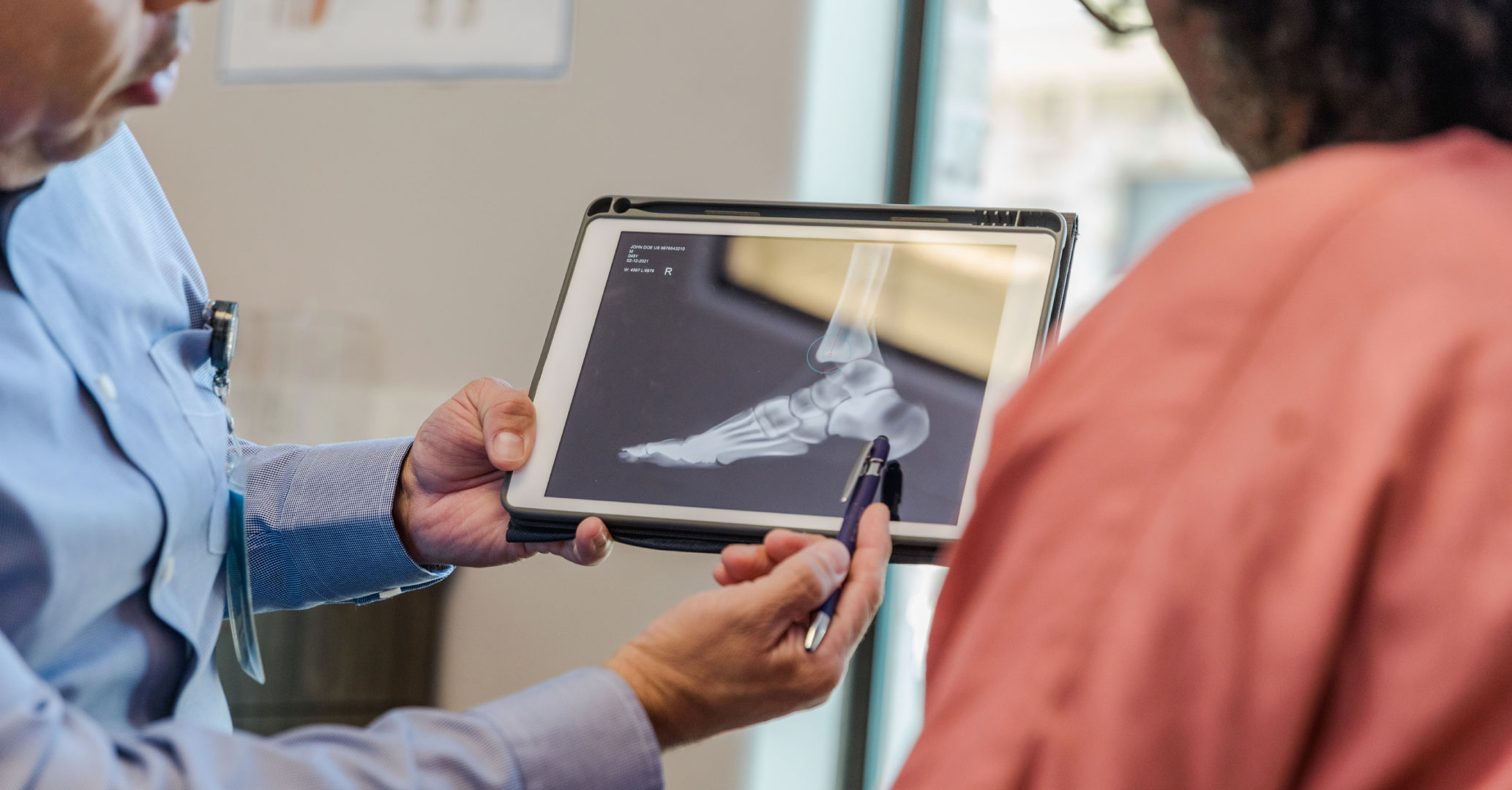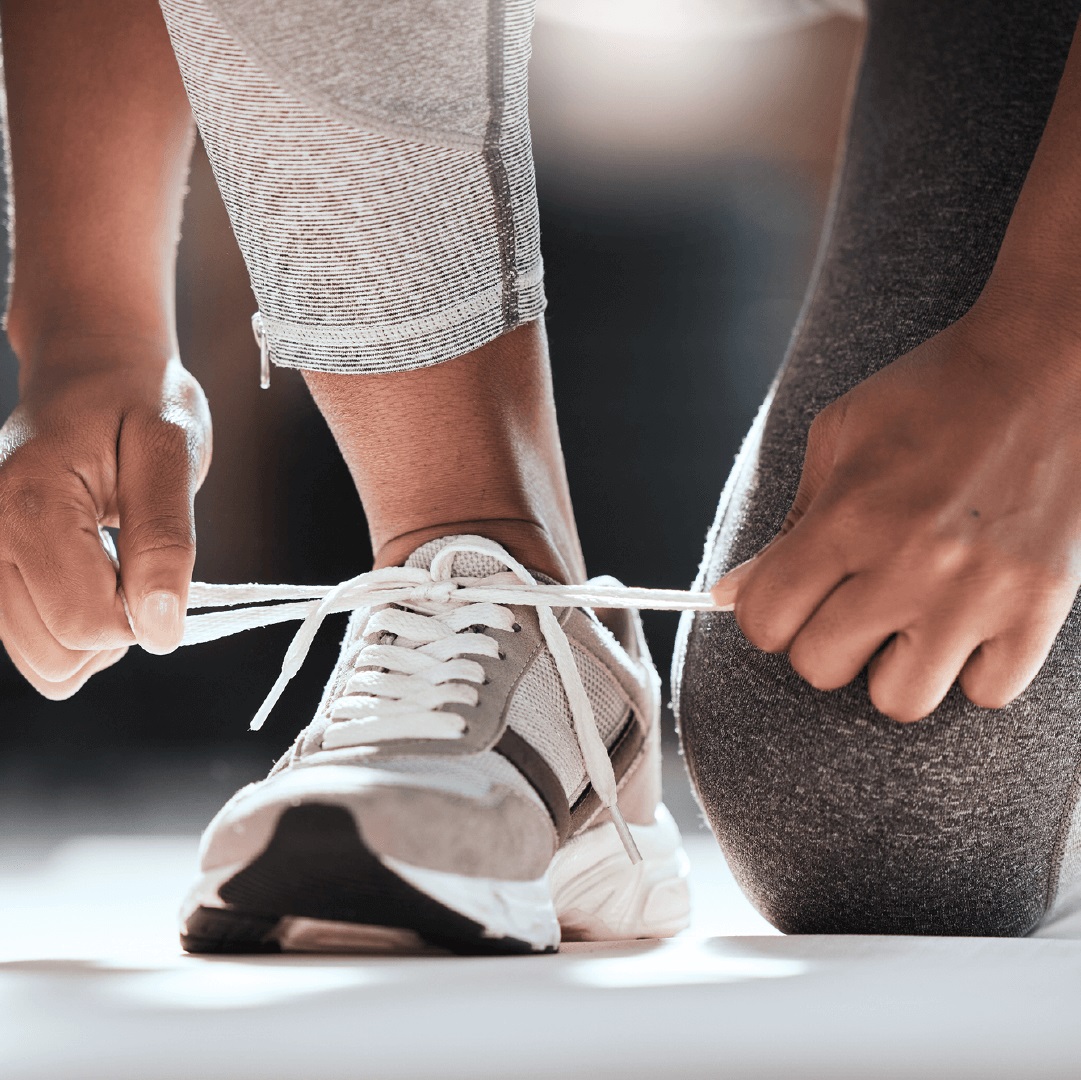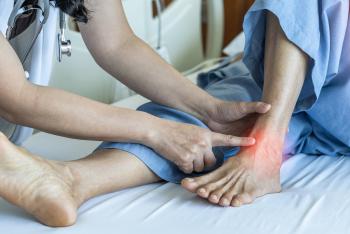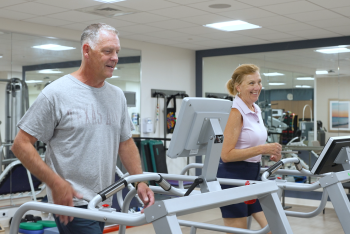Tarsal tunnel syndrome occurs when the tibial nerve becomes compressed near the ankle, leading to...
Read More
Athlete’s foot is not uncommon, but you deserve treatment that will make you feel comforted and supported. Inspira’s podiatrists are here to help diagnose and treat your condition with the best possible care.
Athlete's foot, also known as tinea pedis, is a common fungal infection that affects the skin of the feet, particularly the spaces between the toes. It is caused by various types of fungi, typically of the Trichophyton or Epidermophyton species. Athlete's foot is highly contagious and can be contracted through direct contact with contaminated surfaces or by walking barefoot in damp public areas.
The symptoms of athlete's foot can vary but commonly include itching, burning, redness and peeling of the skin. In some cases, small blisters or ulcers may develop. The affected skin may become dry, cracked, and painful. If left untreated, the infection can spread to other areas of the foot or toenails.
Athlete's foot is typically diagnosed based on the characteristic symptoms and a physical examination of the affected area. Your podiatrist will look for signs of redness, scaling, itching and peeling of the skin between the toes or on the soles of the feet. If necessary, your podiatrist may collect a skin scraping for microscopic examination or fungal culture to confirm the presence of fungal infection and identify the specific fungus causing the condition.

Nail fungus can be treated with many different therapies, including:

The most common treatment options for athlete’s foot are over-the-counter or prescription antifungal creams, lotions, sprays or powders. These medications contain antifungal agents such as clotrimazole, terbinafine or miconazole, which help eliminate the fungal infection.

Your podiatrist may prescribe oral antifungal medications in more severe or persistent cases. These medications, such as terbinafine or itraconazole, work from within the body to eliminate the fungal infection.

Good foot hygiene is crucial for treating and preventing athlete's foot. This includes keeping the feet clean and dry, washing them regularly with mild soap, thoroughly drying between the toes after washing and wearing clean and breathable socks and shoes. It is important to avoid walking barefoot in public areas, as this can increase the risk of infection or reinfection.
We believe you should be comfortable in your skin, especially the skin on your feet. By partnering with Inspira’s podiatry team at locations across South Jersey, you will find the solution and treatment that works best for you, so that you can put the pain and discomfort of Athlete’s foot behind you.
Athlete's foot is caused by a fungal infection, typically due to exposure to fungi in damp public areas or through direct contact.
Treatment options include using over-the-counter antifungal creams, practicing good foot hygiene, keeping feet dry and wearing breathable footwear.
Yes, athlete's foot is contagious and can spread through direct contact or contact with contaminated surfaces like floors, towels or shoes.
At Inspira, we provide personalized, comprehensive care tailored to each patient's unique needs. Our endocrinologists develop customized treatment plans based on the cause and severity of your condition, with many cases of Cushing syndrome curable within 18 months.
Beyond treating physical symptoms, we prioritize strong patient relationships and open communication. Our team is here to answer your questions, offer guidance, and provide continuous support, empowering you to take control of your health.
Your body needs cortisol to function, so you can’t live without it. Unfortunately, you can’t prevent a tumor that causes Cushing syndrome. If you’re on a glucocorticoid medication, your provider can monitor your cortisol levels closely to prevent a spike.
Yes. Cushing syndrome can be fatal without treatment, causing health problems including infections, blood clots, depression, heart attack, weight gain, memory problems, high blood pressure, high cholesterol, broken bones, type 2 diabetes and more.
You may recover from Cushing syndrome after several weeks of treatment. Most patients’ cortisol levels return to normal after 18 months of treatment.

Tarsal tunnel syndrome occurs when the tibial nerve becomes compressed near the ankle, leading to...
Read More
Inspira Podiatrists share simple but often overlooked ways to care for your feet—from walking on the...
Read More
Crocs offer comfort, breathability and convenience but lack essential arch support and stability for...
Read More